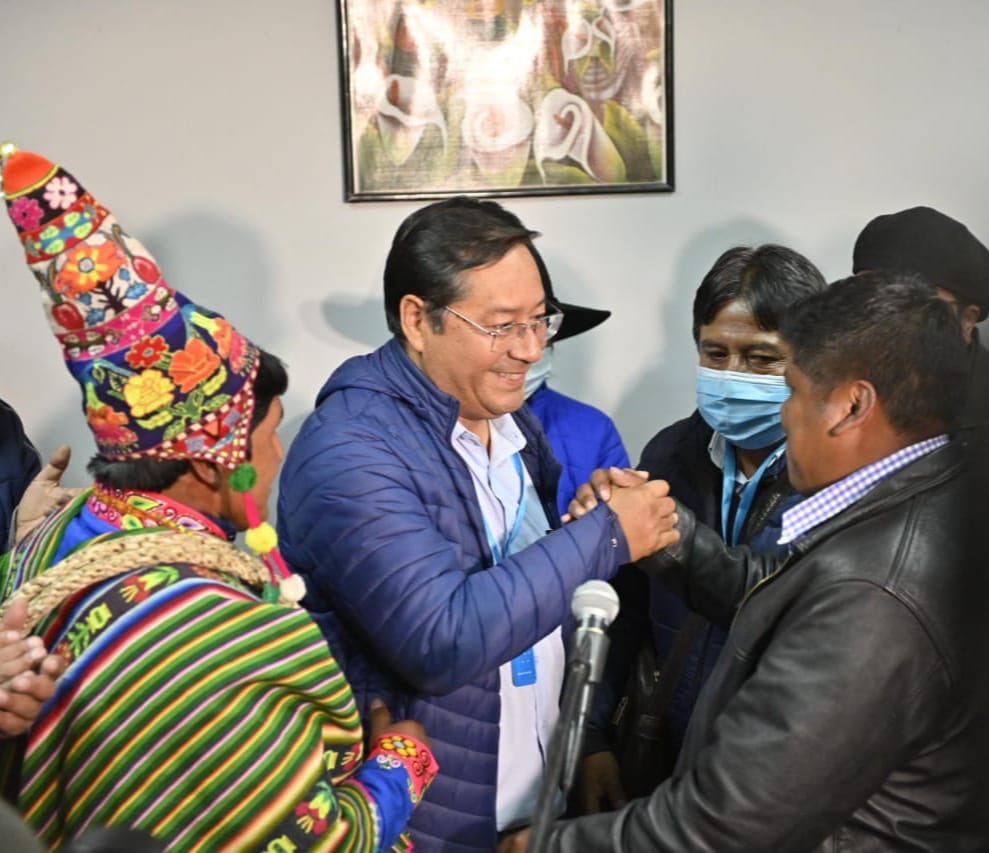
(Argus, 19.Oct.2020) — Gas-rich Bolivia’s socialist party swept yesterday’s elections and will return to power by year’s end, but with a more pragmatic leader at its helm.
Former finance minister Luis Arce won more than 50pc of the vote in two exit polls, topping his nearest rival, former president Carlos Mesa, by more than 20 points. While the results are still unofficial, Bolivia’s conservative interim president Jeanine Añez confirmed Arce’s outright victory in a late-night message. A narrower victory would have required a run-off ballot. Congressional results are still trickling in.
Arce’s decisive victory ends a tumultuous transition year since former president Evo Morales claimed to have won a fourth term in October 2019 elections clouded by fraud allegations. He resigned in November after the military threatened a revolt, and is now in exile in Argentina. He and his allies claim he was the victim of a coup.
Arce served as Morales’ finance minister during nearly 14 years of MAS rule, a period that kicked off in 2006 with the nationalization of the hydrocarbons industry. A staunch ally of Venezuela’s late president Hugo Chavez, Morales benefited from years of windfall revenue from pipeline natural gas exports to Brazil and Argentina. Despite Morales’ fiery rhetoric, the business community quietly adapted to his policies.
Arce’s tone is markedly less strident. “We are going to work for all Bolivians, building a government of national unity,” Arce said during his victory speech just after midnight. He pledged to “reorient the process of change,” learning from “mistakes” made during the previous MAS administration.
Añez’s interim administration controversially pivoted Bolivia into the US political sphere by restoring anti-narcotics cooperation and recognizing Venezuela’s US-backed political opposition. She is now expected to cede power to Arce in a matter of weeks, rather than wait for the traditional early January handover.
Arce will inherit a much different country than Morales left behind, with the economy forecast to shrink by 5.2pc this year because of the Covid-19 pandemic and a dimmer gas outlook.
“Natural gas was the most important source of economic growth, but it is fading because of lower prices and declining production,” former interim president Eduardo Rodriguez told Argus. “The incoming government will have to find alternatives to attract productive investment from outside the country.”
Bolivia’s gas production is stagnant at around 40mn m³/d, down from some 60mn m³/d a decade ago. Among the foreign companies partnered with YPFB are European companies Repsol, Shell and Total, Brazil’s state-controlled Petrobras and Russia’s Gazprom.
Brazil’s massive pre-salt discoveries and Argentina’s Vaca Muerta shale development mean that neither country needs as much Bolivian gas as it used to.
The MAS government plan for 2020-25 calls for building up the domestic gas market. The Morales government built a $900mn fertilizer plant that now stands idle. Arce’s team has vowed to reactivate it.
The Morales government had signed a urea supply deal with Russian fertilizer giant Acron, but it was iced before he left office.
Lithium Promise
More economic promise for Bolivia seems to lie with lithium. “The Morales government was too slow in making decisions about industrialization of lithium,” Rodriquez said. “This will need to be a priority for the new government to attract investment.”
Bolivia signed a deal with a German firm, ACI System, to develop brine lithium in the Uyuni salt flats in Potosi. That contract was scrapped by Morales shortly before he resigned last year.
Arce’s plan foresees not only development of lithium cathodes and batteries, but associated products from boron to potassium chloride.
Pilot projects started by state-owned lithium company YLB produce limited quantities of potassium chloride. The firm reported 5,000 tons of potassium chloride exports to Brazil and Chile in January-August 2020.
__________
By Lucien Chauvin and Patricia Garip

